Is it mandatory to install a gas leak detector: legal standards and expert recommendations
Gas equipment has always been considered one of the most dangerous in terms of operation. At the same time, the use of gas in everyday life has become an integral part of housekeeping. From cooking in the small kitchens of Khrushchev’s buildings to heating huge country houses.
Unfortunately, most of the tragedies that have occurred in recent years are associated with a gas leak. That is why the issue of installing a gas leakage sensor has received such a resonant value, because earlier the legislator did not oblige the device to be installed in the gas system communication.
In this article, we will understand what a gas leakage sensor is, why and where it is needed. We also consider the laws relevant for 2019 regarding the installation of sensors, find out whether it is necessary to install a gas leak sensor and analyze the advice of experts in this field.
The content of the article:
What is a gas leak sensor?
If detect gas leak most often it is possible only by a specific smell, which often happens too often, then the gas leakage sensor allows this to be done much earlier. It is designed to detect household gas particles in indoor air that exceed the permissible rate (in percent).
Having determined the increase in gas concentration, the device informs the person about it with an audible signal. Also, modern sensors are equipped with the ability to additionally report this information to the gas service, which allows you to quickly act in situations where the owner of the apartment is not at home.
The design of the gas sensor includes a sensing element, which is triggered at the slightest deviation from the standard values of the composition of the air.
It is important to remember that in practice, users often encounter cases of erroneous operation of a gas leakage sensor. But do not neglect this signal and turn off the device in the future.In matters relating to gas equipment, it is better to be safe again and check whether everything is working properly.
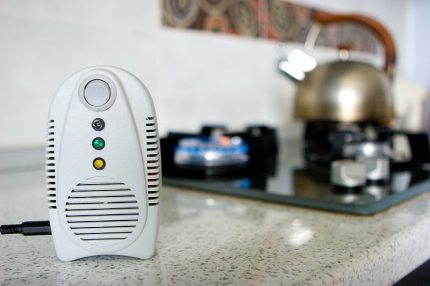
As for the dimensions and installation, domestic gas analyzers are quite compact and can be placed anywhere.
The device and the principle of operation of the device
Depending on the groups of detected gases, the device design provides for various types of sensors: optical, electromechanical, thermomechanical and others.
The main components in the design of the sensor:
- primary convertl, which determines the amount of gas concentration in the surrounding space;
- measurement module, which compares the data received from the primary converter with the allowable rate of gas in space;
- actuating mechanism, which automatically shuts off the gas supply from the system;
- power supply, which ensures the continuous operation of the sensor - usually a battery or a mains power supply.
All structural elements are assembled in a compact housing.
When the gas concentration exceeds the permissible value, the sensor element of the primary transducer, which measures the composition of the surrounding air, changes its characteristics. This change becomes a signal for the measurement module, which, in the event of deviation from the set values, gives a light / sound signal, as well as a command to shut off the gas (if it is a sensor with a shut-off valve), triggers an alarm.
The main functions of the gas leak sensor
Next, we will talk about whether, in principle, a gas leak detector is needed for domestic use.
So, based on the principle of operation, the gas leakage sensor performs the following functions:
- accident notification;
- automatic gas shut-off using electromagnetic shutoff valves;
- the inclusion of ventilation, providing exhaust air.
This is just an operative measure. Further actions to eliminate the leak must be carried out by gas service specialists. It turns out that such a sensor is very useful in everyday life.
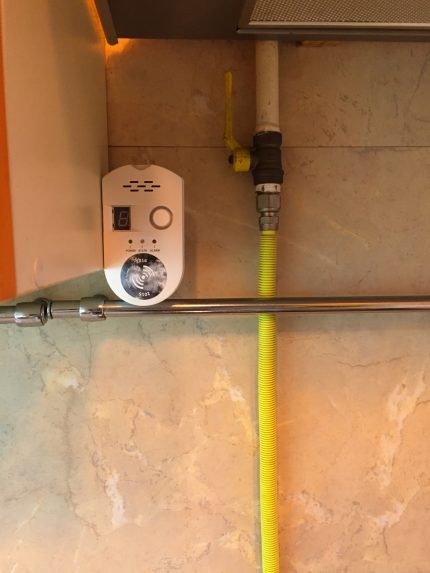
Who and why requires the installation of sensors?
First of all, the installation of gas leakage sensors is necessary in order to reduce the number of explosions, fires and other accidents. And, of course, reduce the number of victims.
For this reason, the mandatory installation of these control devices at the beginning of this year was submitted to the State Duma for consideration. Substantiating the availability of modern technologies in this area, the authors of the bill require developing and universally connecting a gas control system that will automatically alert and cut off the gas supply in case of emergency.
The bill was to amend the articles Housing Code.
By the way, the solution to the problem of installing such systems should be provided at the expense of the capital repairs fund, the scope of which includes:
- elevator repair;
- repair of basements and roofs;
- repair and maintenance of normal functioning of intra-house engineering systems.
The developers of the bill suggest that the sensors should be installed in basements with gas boilers and in kitchens.
As a result, a change in the Housing Code did not occur, and special Rules were developed and approved that regulate the procedure for designing gas consumption systems in residential buildings.These rules are abbreviated as SP 402.1325800.2018 and entered into force on June 2019.
In accordance with chapter eight of the rules, security must be carried out in accordance with the requirements specified in SP 4.13130.2013 and SP 7.13130.2013.
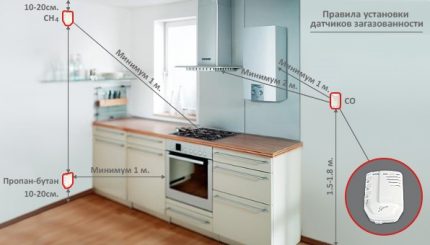
In the same section, the cases of mandatory installation of gas sensors are indicated:
- in locked houses;
- regardless of the installation location with a gas equipment capacity of more than 50 kW;
- in boiler rooms located on the ground floors and in basements;
- in multi-apartment residential buildings;
- in boiler rooms, which are located in apartment buildings and are intended for built-in or attached public premises;
- when placing gas-using equipment in apartment rooms.
For understanding, one should define gas-using equipment - these are systems in which gas is used as fuel. This applies to gas boilers, gas water heaters, stoves and more.
However, based on 4 points, we can conclude that it is necessary to use gas leakage sensors in apartment buildings.
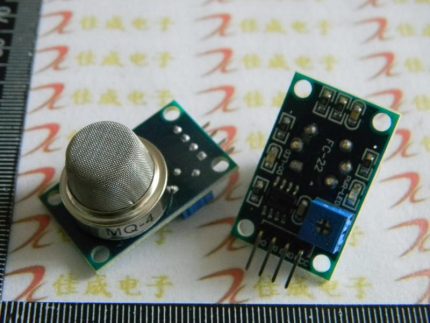
Thus, starting in June 2019, gas sensors must be used when designing new houses.
Mandatory installation of leakage sensors
Regarding the issue of mandatory installation of household gas leakage sensors, domestic law has not yet developed a law for residents of constructed apartment buildings.
The State Duma understands that the implementation of this project will require numerous costs:
- providing wages for employees installing gas analyzers;
- equipping with technical tools that analyze the situation;
- rapid response equipment and personnel;
- laying of communications;
- necessary equipment for extinguishing and repairing gas systems.
Funds for solving these issues are most likely to be allocated from taxation funds, which in turn may lead to an increase in taxes on housing and communal services.
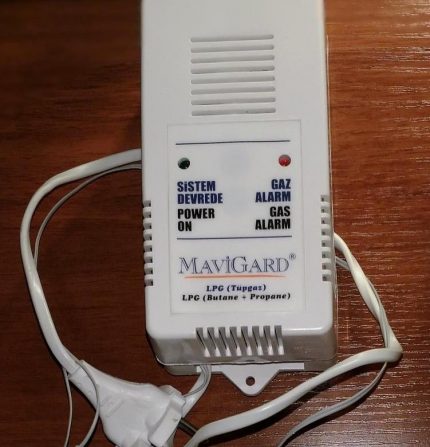
In the existing instructions for safe use of gas when solving household needs N 1614 / ave., which entered into force on December 5, 2017, all citizens of the Russian Federation who are the owners of apartments and houses are subject to the following obligations:
- maintenance of gas equipment in good condition and cleanliness;
- maintaining the integrity of established seals;
- gas consumers being instructed in their use.
However, there is no mention in the mandatory installation of a gas leak sensor. Installing or not installing this equipment is considered the prerogative of the homeowner.
Selection Expert Tips
One of the main issues that scare gas consumers concerns the possibility of disconnecting the gas supply from the communication and imposing fines for the lack of a gas leak sensor. Lawyers help answer the question about the need to install household gas sensors.
So, in the case of an energy supply agreement and timely payment of gas supplies, no violations in the technical use of gas equipment and compliance with the requirements for its content, the gas supplier has no right to stop the supply.
The presence of a gas leakage sensor in the kitchens of apartment buildings or in the kitchens of private houses in the case of using only a gas stove is not necessary.
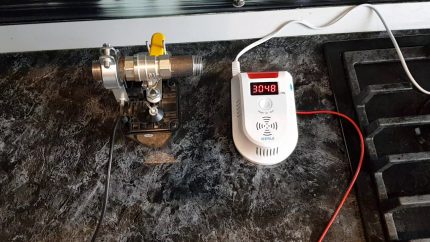
In accordance with Part 2 of Art. sixteen Law No. 2300-1 “On the Protection of Consumer Rights” of February 7, 1992 prohibited the imposition of services, in this case, the mandatory installation of gas leakage sensors. Therefore, do not unconditionally agree to the installation of this equipment under the threat of a gas cut-off.
Nevertheless, most specialists in the field of gasification are categorical and believe that the installation of gas leakage sensors is a necessary condition for ensuring life safety. They refer to a number of European countries, such as Germany, Norway and Denmark, where the installation of sensors is a prerequisite.
According to statistics, the number of accidents related to the consequences of a gas leak decreased by 85% after the introduction of the mandatory installation of these devices.
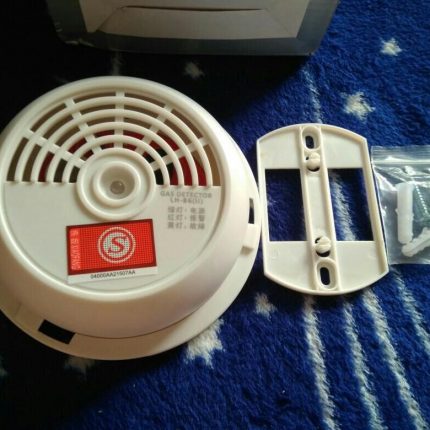
As for the type of sensor power, you can choose wireless option or mains powered. The former are preferable, because they will be able to notify the owner of the danger, even in the event of a power outage.
If we talk about the quality and price category of the selected device, then there is no unambiguous assessment. Of course, choosing a more expensive instance, you get not only a more reliable and sensitive sensor.
But this option will have a number of additional functions:
- determination of critical gas concentration in air;
- prompt notification of emergency services about a gas leak;
- Notification of the landlord via cellular.
Cheaper devices do not always clearly do their job. Often, the response of the sensors occurs not only to a gas leak, but also to an elevated temperature or to an increased concentration of smoke and steam that are formed during cooking.
You still do not have a leakage sensor, but you are confused by the persistent smell of gas in the room? What to do and where to call we described in detail in this stuff.
Conclusions and useful video on the topic
In order to figure out how to install a gas leak sensor yourself, you can watch this video:
Do you still think it is mandatory to install gas analyzers in a house or apartment at present and will there be a penalty for their absence? The answer to this question is unequivocal - no. But, based on the foregoing, it is worth noting that the installation of gas leakage sensors is mandatory in the design and construction of houses starting in July 2019. Also, the installation of gas analyzers is currently considered voluntary and for their absence, the cessation of gas supply to the apartment or house is prohibited. But, in the near future, changes in legislation are possible, which will oblige to install sensors in every kitchen.
And in conclusion, it must be said that the gas leakage sensor is first of all your safety. Its installation can prevent serious tragedies, since not all residents of apartment buildings always comply gas appliance operating rules.
And what do you personally think about installing a gas leak sensor? Do you consider it an important element in preventing the occurrence of fires and explosions in the event of a leak? Or are such sensors another “money-laundering” of unsuspecting users? Express your opinion, share your experience in operating sensors, take part in the discussion - the contact form is located below.

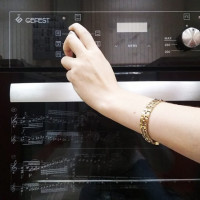 How to turn on the oven in a gas stove: recommendations for igniting gas in the oven and an overview of safety rules
How to turn on the oven in a gas stove: recommendations for igniting gas in the oven and an overview of safety rules 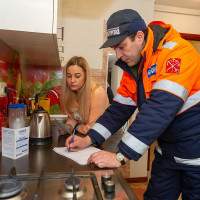 Gas connection in an apartment: procedure and rules for gas connection in apartment buildings
Gas connection in an apartment: procedure and rules for gas connection in apartment buildings 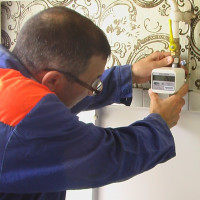 Warranty period for gas meters: service life and features of replacing gas meters
Warranty period for gas meters: service life and features of replacing gas meters 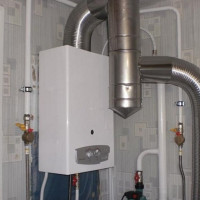 Flowing gas water heaters: TOP-12 models + recommendations for the selection of equipment
Flowing gas water heaters: TOP-12 models + recommendations for the selection of equipment 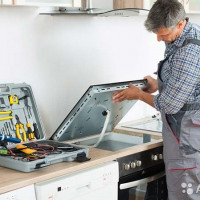 Connecting a gas stove with an electric oven: installation procedure + norms and rules for connection
Connecting a gas stove with an electric oven: installation procedure + norms and rules for connection  Stinks of gas from the stove: the causes of the smell of gas from the oven and from the burners and tips for eliminating them
Stinks of gas from the stove: the causes of the smell of gas from the oven and from the burners and tips for eliminating them 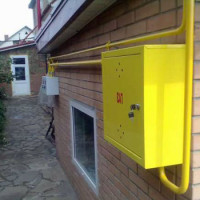 How much does it cost to connect gas to a private house: the price of organizing gas supply
How much does it cost to connect gas to a private house: the price of organizing gas supply  The best washing machines with dryer: model rating and customer tips
The best washing machines with dryer: model rating and customer tips  What is the color temperature of light and the nuances of choosing the temperature of the lamps to suit your needs
What is the color temperature of light and the nuances of choosing the temperature of the lamps to suit your needs 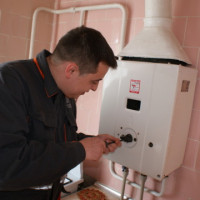 Replacement of a geyser in an apartment: replacement paperwork + basic norms and requirements
Replacement of a geyser in an apartment: replacement paperwork + basic norms and requirements